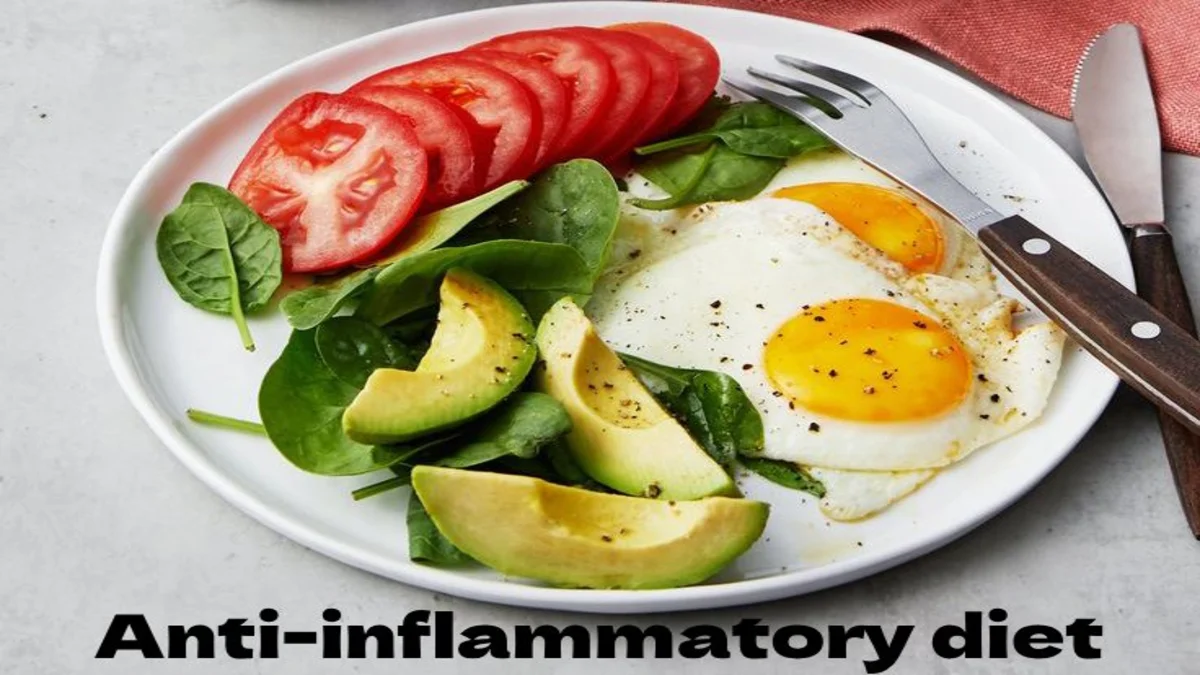Discover how your relationship with food can impact your overall resilience and well-being. Learn how to build a healthy and positive connection with food in this insightful guide.
Have you ever thought about the emotional connection you have with food? Many people turn to food for comfort, stress relief, or as a coping mechanism. But what if you could develop a healthier relationship with food that not only nourishes your body but also builds resilience?
Exploring your relationship with food
To foster a positive connection with food, it’s crucial to identify indicators of an unhealthy relationship with food.
Having a positive connection with food is not about the quality or types of food you consume but about your choices and reasons for eating it.
Enhancing your connection with food will lead to reduced stress and anxiety related to meals and increased freedom in your eating habits.
Signs indicating a poor relationship with food include:
- Guilt arises from consuming food.
- You steer clear of or limit foods considered unhealthy for you.
- You’ve created an extensive set of guidelines for the types of foods you are allowed and not allowed to consume.
- Depend on calorie counters or apps to signal the end of your daily meals.
- You disregard your body’s innate signals of hunger
History includes yo-yo dieting or keeping up with recent diet trends
Eating in social situations can cause significant stress and anxiety as you worry about how others perceive your food preferences. - You restrict food and/or overeat.
Experiencing all these signs isn’t necessary to indicate a poor relationship with food.
Feeling shame, guilt, stress, or fear about the foods you eat is a key indicator that your relationship with food may need improvement.
It is vital to understand that your connection with food might vary.
At times, you may indulge without any regrets or restrictions (which is positive).
However, there may be occasions when you feel remorseful after consuming specific foods (which is not ideal but common).
Aim for a positive relationship with food by maximizing enjoyable experiences over negative ones.
It is crucial to prioritize being patient and kind to yourself.
Establishing a good relationship with food
A solid connection with food is similar to any other bond — it requires time, effort, and plenty of patience.
It’s crucial to grasp that your connection with food extends beyond simply nourishing your body.
Unlike animals that eat solely for survival, humans have a multitude of reasons for eating, including joy, pleasure, culture, tradition, socialization, and providing fuel for their bodies.
Appreciating food for more than just its role as fuel allows you to recognize its value and cultivate a healthier connection with it.
Indicators of a healthy connection with food consist of:
- Grant yourself unconditional permission to indulge in the foods you love.
- Respect your body’s natural hunger signals by listening to them.
- Eat when hungry, and stop when full.
- All foods are allowed.
- You focus on health, not the weight shown on the scale.
- You choose what foods to eat without being influenced by others’ opinions.
- You feel no need to explain your dietary preferences.
- You grasp the concept that your identity isn’t determined by your dietary choices.
- You appreciate consuming all types of food in moderate amounts.
- You select foods that help you feel optimal.
- Food choices do not prioritize calories.
If you look at this list and think you’ll never reach this stage, know that you’re not alone.
Lots of people find it challenging to let go of the diet mindset and overcome years of ingrained diet culture messages they’ve absorbed since childhood.
Instead of trying to complete every task on the list, focus on handling one task at a time at a pace that works for you.
How to start having a good relationship with food
Hoping for change is different from actively working to make it a reality. Remember, you are unique.
Your food history and preferences are your own, and you have every right to approach this journey in a manner that feels right for you. With that in mind, here are a few useful suggestions.
1. Allow yourself to eat without any conditions
A key indicator of a positive and nourishing relationship with food involves granting oneself unconditional permission to enjoy eating.
Setting strict guidelines for meal times can lead to increased hunger, a sense of lack, and anxiety towards eating.
Regardless of whether you eat too much at lunch or indulge in some extra cookies for dessert, you should always honor your body’s hunger cues and desires by eating when needed.
Your body deserves nourishment regardless of the circumstances.
2. Eat when hungry
Every individual inherently possesses the knack to manage their appetite from birth.
This is evident in youngsters, who effortlessly recognize their hunger and satiety levels.
However, as individuals grow older, they gradually lose this capability due to various factors.
How frequently were you reminded by your parents to finish your food despite their best intentions?
Despite their good intentions, as a child, you were taught to disregard cues indicating fullness and keep eating until other signals (such as an empty plate) signaled that you were finished.
Furthermore, diet culture has ingrained in individuals the practice of depending on a specific calorie count to dictate meal completion, rather than stopping when one feels satisfied.
Getting closer to listening to your natural hunger cues can help regulate appetite and control food intake more effectively.
3. Engage in mindful eating
Mindful eating is pivotal in repairing an unhealthy relationship with food, emphasizing being fully present and eating in the moment.
Eating mindfully involves focusing solely on your meal, without any distractions like your phone, TV, or a book.
Instead, you carefully notice details like the flavors and consistency of the food, how your hunger and satisfaction levels evolve, and your overall enjoyment of the meal.
Mastering the art of eating slowly and relishing each bite can assist in discovering your true food preferences and connecting with your body’s innate cues for hunger and fullness.
Additionally, this tool can assist you in pinpointing the motivations behind your food selections.
Do you find yourself consuming food out of hunger, willing to devour anything within reach? Want to eat food thinking it will improve your emotional or physical well-being?
Try answering some questions while eating:
- What flavor and texture do I perceive at this moment?
- Do I enjoy it?
- Am I consuming it simply because it’s accessible, or because I genuinely desire it?
- Is this dish satisfying?
- Is it meeting my current craving?
- Does this food address the issue I anticipated it would?
- How does this food affect my hunger?
- Am I noticing my hunger diminishing?
- What emotions do I experience while eating this?
- Does it elicit joy, guilt, or anger?
- Was hunger truly present within me?
- If not, what led me to choose to eat (for example, emotional eating, cravings, boredom)?
Certain inquiries could prove challenging and tough to tackle.
Keeping a journal to jot down your reflections could be beneficial.
The core is to respond to these queries without criticism but rather with an inquisitive mindset.
With time, these observations can assist in recognizing the motivations behind your food selections and determining if alternate beneficial coping strategies are necessary.
Interested in trying mindful eating? Explore our complimentary 21-day challenge!
4. Incorporate a variety of foods into your diet
Labeling a food as “bad” only elevates its significance undeservedly.
While some foods offer more nutrients and can enhance health, consuming a specific food won’t magically impact your well-being either.
Labeling a food as “bad” elevates it in your mind.
People typically deem foods “bad” if they are tasty but lacking in nutrition, like being high in sugar, fat, or salt.
However, when you forbid yourself from having something, your craving for it only grows stronger.
A research study showed this occurrence when a cluster of self-professed restrictive eaters and non-eaters were provided with a milkshake and subsequently placed in separate rooms for unlimited cookie consumption.
Unsurprisingly, individuals who were not dieting displayed superior self-regulation by ceasing consumption when satiated, whereas those adhering to diets consumed a notably larger amount of cookies.
This phenomenon was linked to the concept of “counter-regulation.
Essentially, the dieters believed that because the milkshake had already violated the rules of their strict diet, they might as well indulge excessively in the cookies.
Allowing all foods in your diet gives you more control over your intake because you know they are always accessible.
Conversely, restricting certain foods and viewing them as rare may lead to overindulgence and perpetuate feelings of guilt in a never-ending cycle.
Despite common misconceptions, it is uncommon to constantly desire cookies or cake.
By incorporating a variety of foods into your diet, you may observe a reduction in cravings for specific items.
This occurrence is known as habituation, indicating that the more you are exposed to a particular food or flavor, the less intriguing and attractive it appears.
Begin by considering all foods as having equal value, without ranking any food as superior or inferior to others.
By refraining from labeling foods as either “healthy” or “unhealthy,” you diminish their influence. Gradually, you will find yourself less inclined to overindulge in the presence of such foods.
5. Pay attention to your plate
Picture a life where you need not explain your food preferences to yourself or others.
Many individuals often justify their food choices, whether for themselves or others.
They might say, “I’m having ice cream because I had a rough day” or “I need to have a salad for dinner as I didn’t get to work out.
Instead of justifying your food selections, opt to consume the foods that best suit your current preferences.
Seek professional help
Your food-related connections can be intricate and may not always be resolved independently.
Professional support and guidance can assist in transforming your relationship with food and enhancing your overall health.
Luckily, numerous experienced dietitians, therapists, and healthcare providers are available to collaborate with you in recognizing your profound food-related past and offering guidance to assist you in managing it.
Summary
Your personal and unique connection with food demands consistent effort to maintain its healthiness.
While fixing a negative relationship with food may appear challenging, reaching a point where food no longer dictates your life but instead enhances your well-being is achievable.
Navigating your relationship with food involves understanding that food carries no inherent value of being good or bad; it’s the labels you attach to it that wield influence.
A positive, healthy relationship with food involves embracing all foods without limits, recognizing the importance of food beyond just calories, and understanding that your worth as a person is not determined by the food you consume.
Beginning the journey towards improving a troubled relationship with food can be daunting and challenging, yet ultimately rewarding in the end.
FAQs
What is the relationship between food and person?
What suggests that someone has a nurturing relationship with food?
The goal of a healthy relationship with food is to have more happy experiences than bad ones. Being patient and gentle to oneself is essential. A negative connection with food typically includes restricting or overeating certain foods, dieting on a regular basis, and feelings of shame or guilt after consuming them.
What does it mean to change your relationship with food?
A healthy relationship with food entails having a balanced approach to eating. It entails consuming a variety of foods that supply the nutrients your body need, as well as paying attention to your body’s hunger and fullness signals and eating accordingly.
What does a healthy food relationship look like?
A healthy connection with food involves social features such as eating with others and sharing food, experiencing new foods and cuisines, as well as celebratory, religious, and cultural aspects. Examples include birthdays, Christmas, Chinese New Year, and Ramadan.





